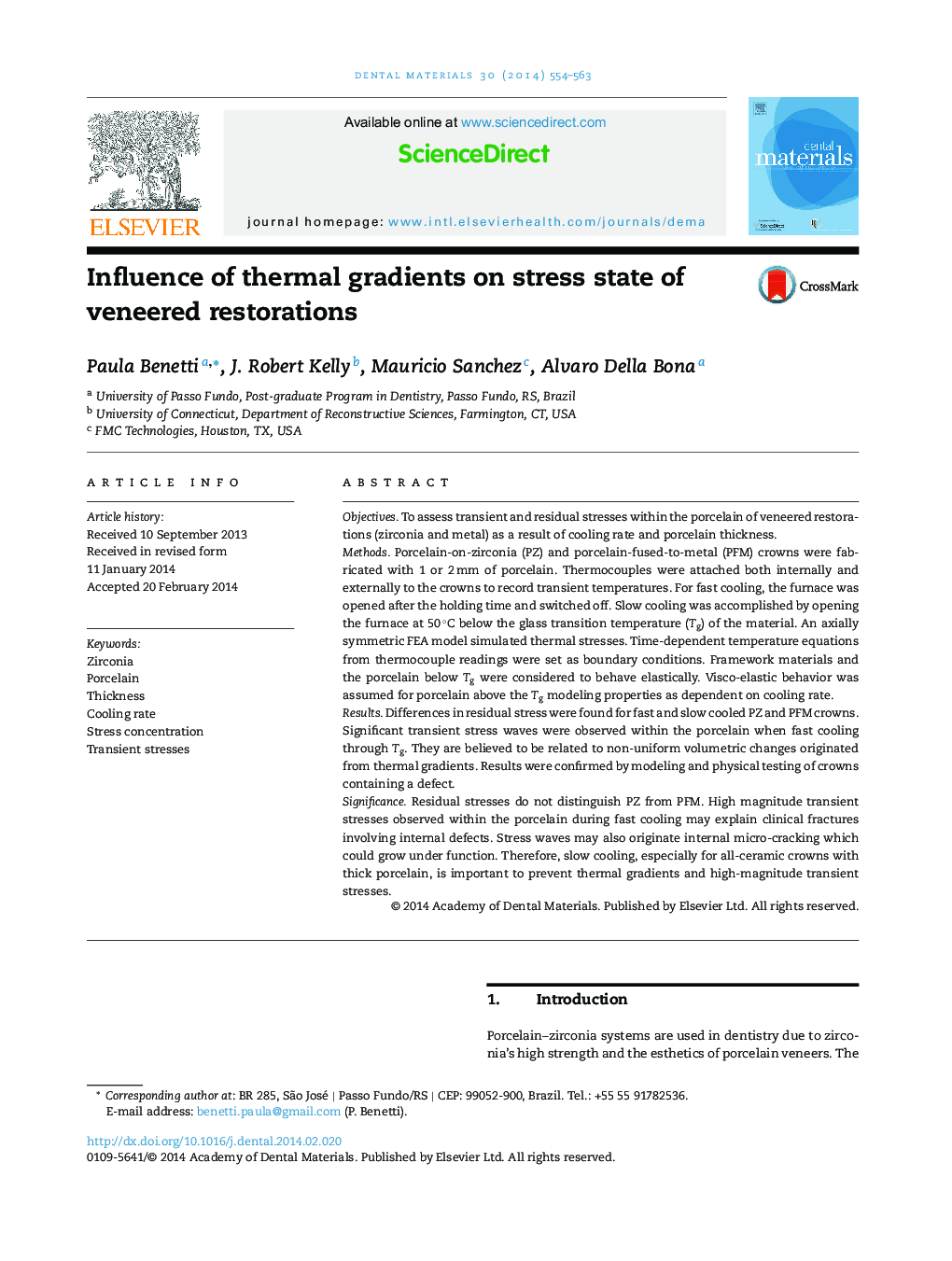| کد مقاله | کد نشریه | سال انتشار | مقاله انگلیسی | نسخه تمام متن |
|---|---|---|---|---|
| 1420879 | 986385 | 2014 | 10 صفحه PDF | دانلود رایگان |
ObjectivesTo assess transient and residual stresses within the porcelain of veneered restorations (zirconia and metal) as a result of cooling rate and porcelain thickness.MethodsPorcelain-on-zirconia (PZ) and porcelain-fused-to-metal (PFM) crowns were fabricated with 1 or 2 mm of porcelain. Thermocouples were attached both internally and externally to the crowns to record transient temperatures. For fast cooling, the furnace was opened after the holding time and switched off. Slow cooling was accomplished by opening the furnace at 50 °C below the glass transition temperature (Tg) of the material. An axially symmetric FEA model simulated thermal stresses. Time-dependent temperature equations from thermocouple readings were set as boundary conditions. Framework materials and the porcelain below Tg were considered to behave elastically. Visco-elastic behavior was assumed for porcelain above the Tg modeling properties as dependent on cooling rate.ResultsDifferences in residual stress were found for fast and slow cooled PZ and PFM crowns. Significant transient stress waves were observed within the porcelain when fast cooling through Tg. They are believed to be related to non-uniform volumetric changes originated from thermal gradients. Results were confirmed by modeling and physical testing of crowns containing a defect.SignificanceResidual stresses do not distinguish PZ from PFM. High magnitude transient stresses observed within the porcelain during fast cooling may explain clinical fractures involving internal defects. Stress waves may also originate internal micro-cracking which could grow under function. Therefore, slow cooling, especially for all-ceramic crowns with thick porcelain, is important to prevent thermal gradients and high-magnitude transient stresses.
Journal: Dental Materials - Volume 30, Issue 5, May 2014, Pages 554–563
